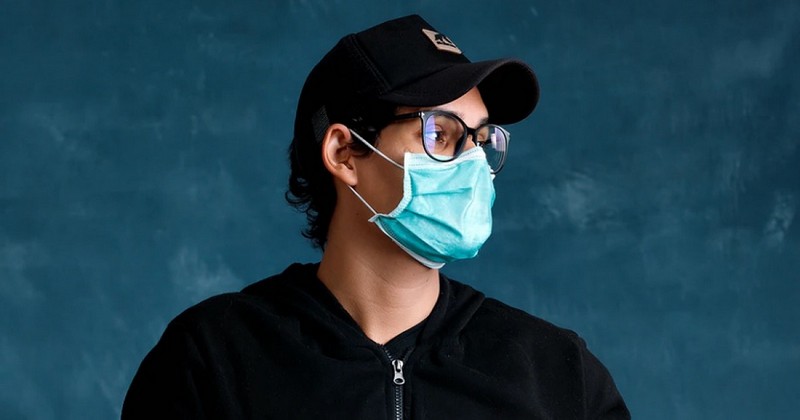The importance of taking care of mental health in the second year of the pandemic

The psychological aspects of this stage of the pandemic make it important to take care of mental health
Although the first wave of coronavirus infections was the one that posed the greatest challenge when it came to adapting to a new and unprecedented situation, in the second year of the pandemic it is necessary not to neglect everything related to mental health.
Often, problematic contexts that last for many months are particularly good at exploiting our vulnerabilities, among other things because we underestimate them and think we are used to them, without being aware of how they wear us down.
Therefore, in this article we will look at several mental health elements to which we should pay special attention if we do not want the second year of the pandemic to lead us to develop psychological problems.
Aspects of mental health to continue to care for during the pandemic
These are the mental health elements to take care of and prioritize especially during the second year of the pandemic.
1. Anxiety management
Anxiety is the inseparable companion of the coronavirus pandemic. Both COVID-19 itself and the consequences of its economic and social impact have left many people feeling that their lives are in turmoil, and in the face of this, it is easy to become anxious and anxious.In the face of this, it is easy for their nervous system to always be in "vigilance" mode to react quickly to the slightest sign that something is wrong around us.
Now, although as individuals we cannot do anything about the COVID-19 crisis, we can modify the way we manage our emotions and our behavioral patterns in the face of it. And that means knowing how to give an adaptive solution to anxiety.
2. Managing loneliness
The tendency to adopt more solitary habits is still present even if "hard" confinement plans are no longer carried out.. The wear and tear of months of barely going to meetings with family and friends can take its toll, especially on people who are more extroverted and more accustomed to face-to-face contact.
3. Self-care
In many cases, changing life habits creates the right situations for us to abandon ourselves more and more, neglecting our physical and mental health. By losing the referents of what we had become accustomed to doing, such as work schedules outside the home and routines of activities with friends, indecision leads us to passivity, and this leads us to internalize new habits that we accept only because they are "given to us" and are easy to carry out. and are easy to carry out. Staying up late watching videos on the Internet, eating too much between meals, spending hours in front of the television....
Faced with this, it is necessary to know how to follow a certain discipline when it comes to structuring the day to day and not constantly postpone what we should really do for our own good.
4. Managing expectations
Both work and personal expectations must be readjusted to adapt to the pandemic context. During the first months of the coronavirus crisis, concerns were focused on the short term: the need to deal with an unprecedented health crisis, the risk of losing one's source of income in a matter of a few weeks, travel problems, etc.
Now, however, it is time to adapt to a post-COVID-19 reality, which implies modifying our long-term plans, for better and for worse. New business models that take advantage of the Internet, savings plans to prevent problems in the event of further waves of contagion, etc. All this makes it necessary to combine anxiety management with strategic thinking and rational decision making, which can be complex.which can be complex.
5. The dynamics of coexistence
Finally, we cannot forget that the emotional exhaustion produced by a pandemic context is multiplied if it affects our coexistence with others. Problems to effectively manage discussions, poor management of time together, communication failures... We must also know how to adapt to the social dimension of the coronavirus crisis.
Do you want to start psychological therapy?
If there are aspects of your daily life that generate emotional discomfort or you have noticed that the way you face the challenges of your life brings you problems, contact us.
At PSiCOBAi we attend people of all ages and offer psychotherapy in face-to-face (in Majadahonda) and online (through video call sessions) modalities.
Bibliographical references:
- American Psychiatric Association (2014). DSM-5. Diagnostic and statistical manual of mental disorders. Madrid: Panamericana.
- Cacioppo, J.; Hawkley, L. (2010). Loneliness Matters: A Theorectical and Empirical Review of Consequences and Mechanisms. Annals of Behavioral Medicine. 40 (2): 218 - 227.
- Clariana, S.M. and De los Ríos, P. (2012). Psicología de la salud. Manual CEDE de Preparación PIR, 04. CEDE: Madrid.
- Santos, J.L. (2012). Psicopatología. Manual CEDE de Preparación PIR, 01. CEDE. Madrid.
- Solomon, C. (2015): Generalized Anxiety Disorder. The New England Journal of Medicine, 373(21): pp. 2059 - 2068.
- Sum, S.; Mathews, R.; Hughes, I.; Campbell, A, (2008). Internet Use and Loneliness in Older Adults. CyberPsychology & Behavior, 11(2): pp. 208 - 211.
(Updated at Mar 9 / 2025)